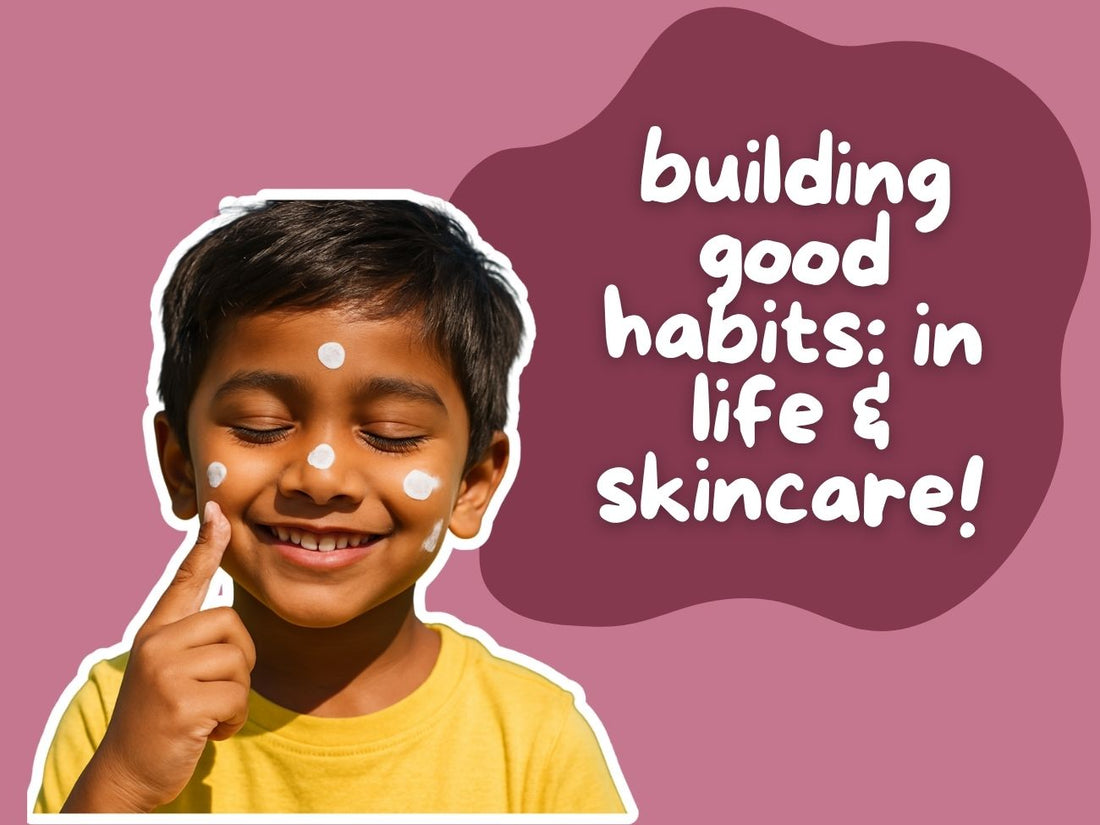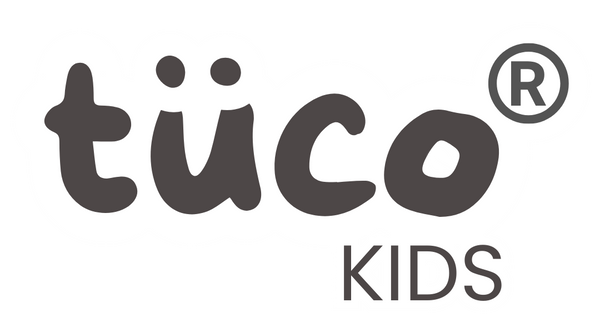
Good Habits for Kids: Age-Wise Guide to Raising Responsible, Happy Children
Why Good Habits Matter Early
Habits form the foundation of character. The way children brush their teeth, greet others, or even handle money shapes who they will become. The earlier we guide them into positive routines, the more natural these habits feel as they grow.
Good habits include more than hygiene or manners as they shape a child’s whole personality:
-
Personal Hygiene: Cleanliness, brushing, bathing, eating healthy.
-
Politeness & Social Skills: Please, thank you, sorry, listening, respect.
-
Responsibility: Organization, time management, chores.
-
Lifestyle Balance: Sleep, outdoor play, exercise.
-
Digital Habits: Healthy screen use, online safety, digital contracts.
-
Financial Habits: Saving, budgeting, spending wisely.
- Character Building: Kindness, empathy, honesty, gratitude
Ages 2–4: Toddlers — Building Basics Through Play
At this stage, toddlers learn by watching and copying. Focus on short, playful routines.
-
Personal Hygiene: Washing hands before meals and after play. Explain germs in a fun way (“invisible bugs that wash away with soap”). Use songs during brushing or hand-washing to keep it fun.
Choosing mild products like Tuco Kids soaps and shampoos makes these little routines easier on children’s sensitive skin.
-
Politeness: Start with “please,” “thank you,” and “sorry.” Keep it simple — gently remind them when they forget, and praise when they use it.
-
Tidying Up: Encourage them to put toys back in the basket. Make it a game: “Who can clean up the fastest?”
-
Sleep Routine: Fixed bedtime helps them feel safe and rested. Use bedtime stories as a calm, predictable signal.
-
Digital Habits: Even toddlers are drawn to screens. Set clear limits (e.g., 30 minutes of supervised cartoon time). Introduce “tech-free” moments like family meals.
Creative Teaching Tips:
-
Use visual charts with stickers for each completed habit.
-
Let toys join in: “Mr. Teddy is brushing his teeth too!”
-
Make politeness playful: create a “magic words” jar — each time they use “please” or “thank you,” add a bead.
Ages 5–7: Preschool & Early School — Manners, Sharing, and Routines
Children now understand rules and teamwork. This is the best time to build social and learning habits.
-
Morning Routine: Waking up, brushing, bathing, and dressing independently. Show them a morning checklist with pictures (sunrise for wake-up, toothbrush for brushing, etc.).
Even simple steps feel gentler when parents add skin- and hair-friendly care like Tuco Kids into the routine.
-
Table Manners: Teach basics like chewing with mouth closed, using cutlery, and saying “excuse me.” Practice at family dinners.
-
Politeness & Respect: Add “excuse me” and “may I” to their vocabulary. Teach respectful greetings for elders.
-
Sharing & Kindness: Encourage sharing toys, snacks, or turns in a game. Role-play situations where kindness matters.
-
Safety Habits: Basic road safety — looking both ways, holding an adult’s hand.
-
Digital Habits: Create a “family digital contract.” Rules might include: no screens at meals, ask permission before using devices, and limit to 1 hour daily.
Creative Teaching Tips:
-
Play “restaurant” at home to practice table manners.
-
Use stories with morals (like “The Giving Tree”) to highlight kindness.
-
Make a politeness jar: every time they remember to say “thank you” or “sorry,” drop a coin or bead inside.
Ages 8–10: Growing Independence — Responsibility and Self-Care
Kids here want independence. Parents can guide them into self-care, responsibility, and balance.
-
Organization: Pack their own school bag, keep their clothes and books in order. Use checklists for daily routines.
-
Time Management: Finish homework before play. Teach the concept of priorities: “work first, fun later.”
-
Healthy Lifestyle: Encourage outdoor play and exercise. Teach them to limit junk food and drink more water.
-
Social Etiquette: Teach them to listen without interrupting and respect different opinions.
-
Hygiene Upgrade: Daily bathing, clean nails, and using tissues when sneezing.With Tuco Kids’ gentle soaps, shampoos, and lotions, parents can make daily hygiene safer and more enjoyable for children’s delicate skin.
-
Digital Habits: Teach online safety: don’t share personal details, don’t talk to strangers online, and balance screen use with outdoor time. Introduce screen-free family evenings.
Creative Teaching Tips:
-
Use timer challenges: “Can you finish packing your bag before the timer rings?”
-
Let them decorate their own study planner with colors and stickers.
-
Create a “tech-free zone” in the house, like the dining table.
-
Encourage journaling, even short daily doodles help focus and reflection.
Ages 11–13: Pre-Teens — Discipline, Digital Manners & Early Financial Habits
Pre-teens can now grasp long-term consequences and abstract ideas like money and responsibility.
-
Study Discipline: Teach them to plan homework and projects without reminders. Use weekly planners.
-
Empathy & Respect: Encourage helping others, listening patiently, and standing up against bullying.
-
Digital Manners: Create a digital contract: no phones at dinner, no sharing personal info, respectful online behavior. Teach them to identify cyberbullying.
-
Financial Habits: Introduce pocket money. Teach “save, spend, share” by dividing it into jars or envelopes. Teach difference between “wants” and “needs.”
-
Chores & Responsibility: Cooking small meals, doing laundry, helping with grocery lists.
Creative Teaching Tips:
-
Involve them in family budgeting: give them a small budget to plan a picnic or dinner.
-
Use real-life examples for empathy: discuss stories from news where kindness mattered.
-
Encourage “chore credits”: each task earns points they can exchange for small rewards.
-
Try a savings challenge: set a goal (like a toy) and let them save toward it.
Ages 14–15: Teens — Life Skills, Money Management & Character Building
Teens are almost young adults. Focus on independence, decision-making, and responsibility.
-
Life Skills: Cooking basic meals, ironing, grocery shopping. Build confidence by assigning “family chef” days.
-
Financial Discipline: Teach budgeting, saving for long-term goals, and the basics of investments. Encourage charitable giving.
-
Emotional Well-being: Journaling, meditation, talking openly about stress. Teach them that it’s okay to ask for help.
-
Digital Responsibility: Discuss online reputation, healthy screen limits, and responsible social media use. Update the digital contract to include teen-level rules.
-
Community Involvement: Volunteering, joining clubs, helping in society projects. Builds empathy and responsibility.
Creative Teaching Tips:
-
Involve them in grocery budgeting: give them ₹500 and let them plan a family meal.
-
Create real-life money lessons: open a teen savings account, let them track their spending.
-
Encourage family debates to practice decision-making and respectful disagreement.
-
Journaling nights — share gratitude lists as a family.
How Parents Can Teach Good Habits Creatively
-
Be the Role Model: Kids mirror you. If you eat veggies, read books, and avoid phone overuse, they’ll follow.
-
Turn Routines Into Play: Use songs for brushing, races for cleaning, or role-play for manners.
-
Consistency Over Perfection: Repetition builds habits. Stick to morning and bedtime routines, even on weekends.
-
Praise Effort, Not Just Success: Say, “I like how you tried to clean up,” instead of only praising when it’s perfect.
-
Use Visual Reminders: Star charts, habit trackers, and even colorful post-its work wonders.
-
Storytelling & Media: Read fables, watch short cartoons, or share stories where good habits helped characters succeed.
-
Give Small Responsibilities: Feeding pets, watering plants, packing bags, habits grow through accountability.
-
Reward with Experiences: Instead of sweets, reward them with outings, story time, or extra play.
-
Family Contracts: Write down rules together for digital use, chores, or routines. Kids follow better when they feel included.
Building good habits in children isn’t about strict rules, it’s about consistency and small, age-appropriate steps. At Tuco Kids, we believe every stage of childhood offers unique opportunities to nurture responsibility, kindness, and independence. From bedtime routines to mindful screen use, start with simple practices that grow with your child
Teaching kids good habits isn’t about nagging; it’s about shaping daily life with creativity and consistency. From toddlers learning “please” to teenagers managing money, each habit prepares them for adulthood.

